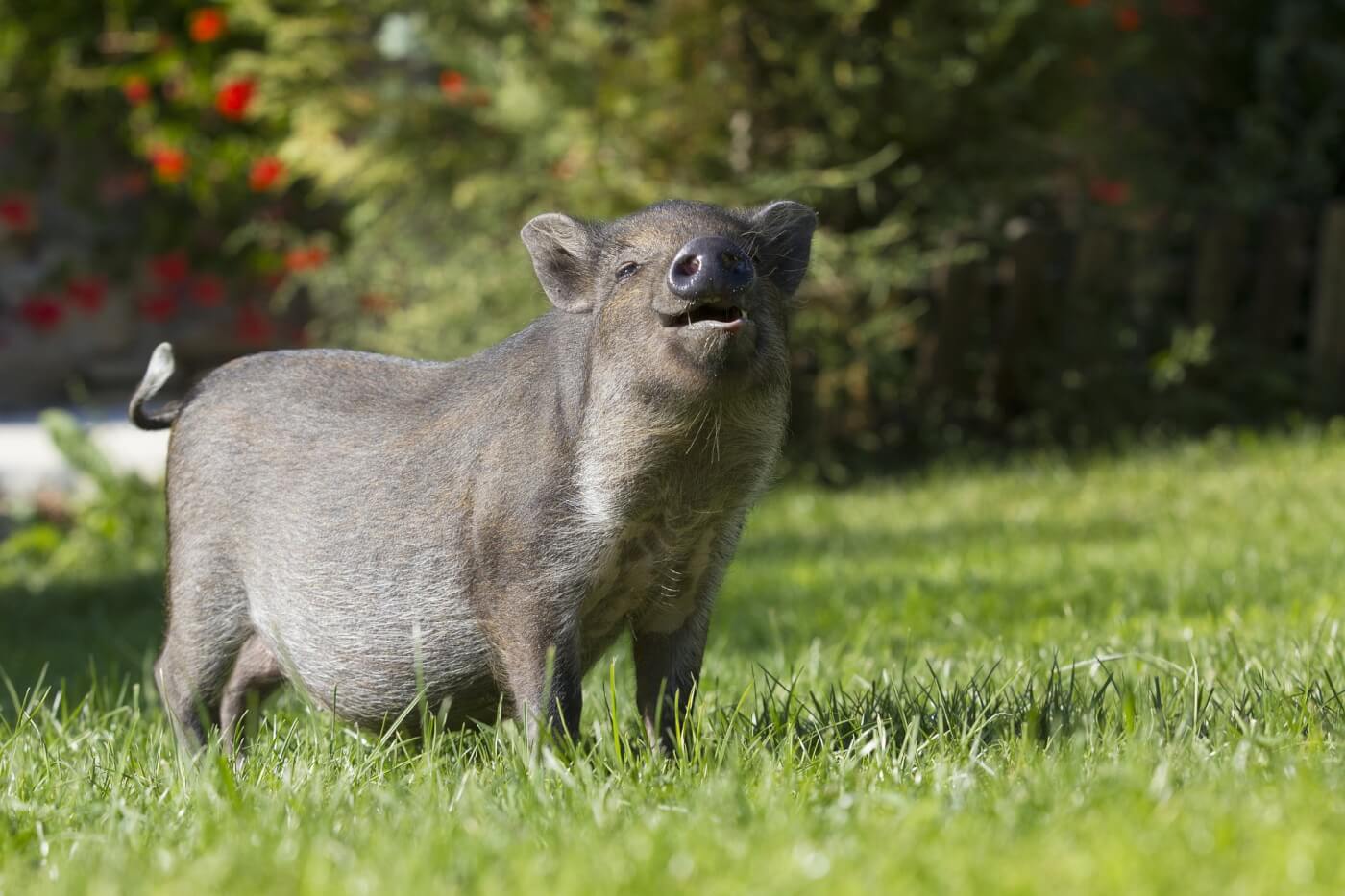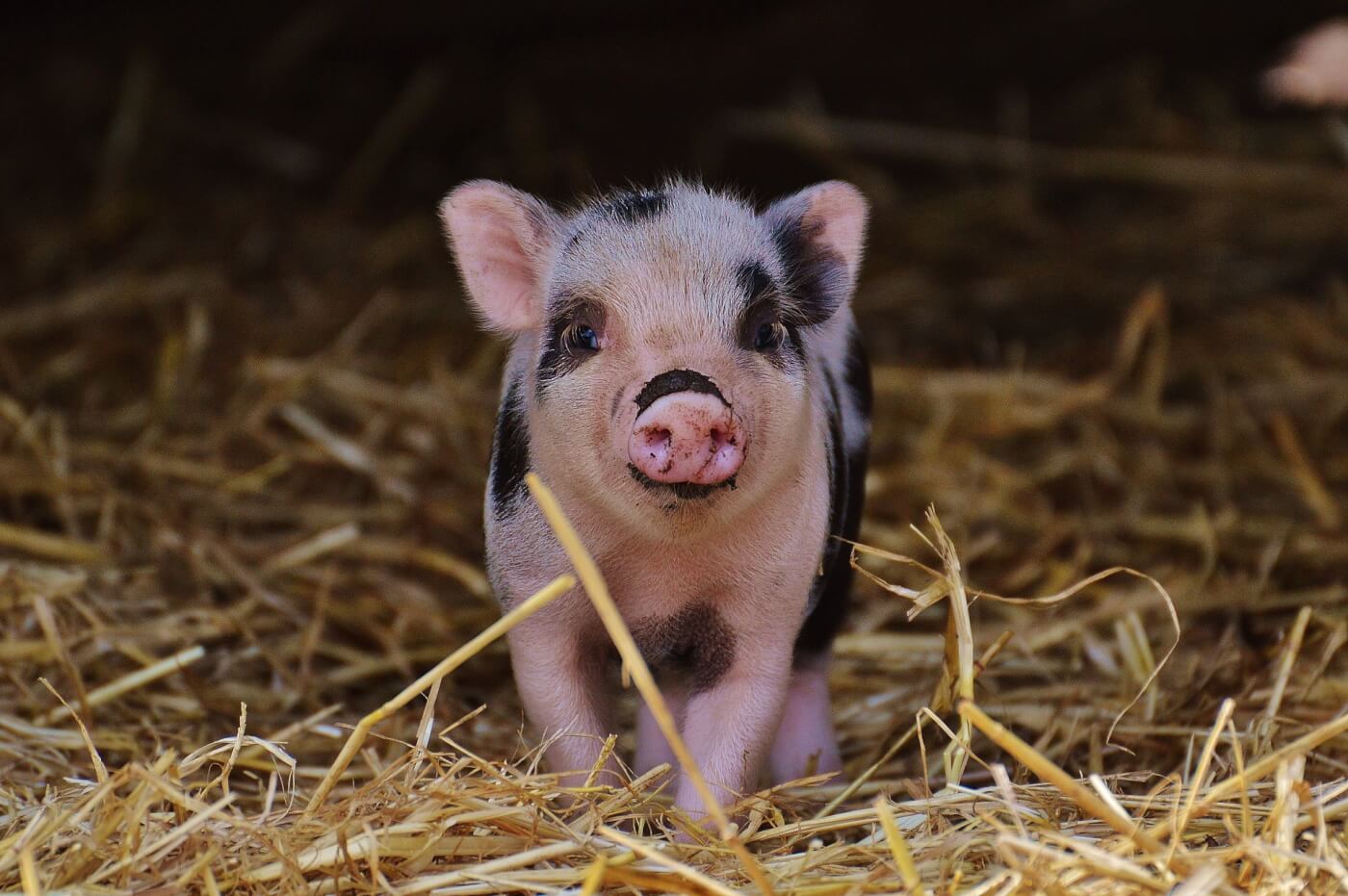Take Action for Pigs!
Pigs are social, playful, protective animals who bond with each other, make nests, relax in the sun, and cool off in the mud. They’re known to dream, recognize their own names, and even show empathy for other pigs who are distressed. Some love to cuddle, while others prefer some space. From this page, you’ll be able to complete multiple PETA action alerts that help pigs with the click of a button.
Get started now:

How Pigs Suffer
On today’s farms, these outgoing, sensitive animals spend their entire lives in cramped, filthy warehouses enduring the constant stress of intensive confinement. They’re denied everything that is natural and important to them. Mother pigs spend most of their miserable lives in gestation and farrowing crates so small that they can’t even turn around. They’re impregnated repeatedly until their bodies give out, at which point they’re sent to slaughter.
Piglets are torn away from their distraught mothers just a few weeks after birth. Their tails are chopped off, the ends of their teeth are snipped off with pliers, and the males are castrated. No painkillers are given to ease their suffering. The young pigs then spend their short lives in cramped, crowded pens on slabs of filthy concrete.
When the time comes for slaughter, pigs are forced onto transport trucks that often travel for many miles through all weather extremes. Many die from heat exhaustion in the summer or become frozen to the inside of the truck in the winter. According to industry reports, more than 1 million pigs die in transport each year, and at least 40,000 sustain injuries by the time they arrive at the slaughterhouse.
Pigs don’t suffer only in the animal-agriculture industry. Despite the existence of superior, non-animal training methods, Canada’s military continues to expose pigs to toxic sarin and mustard agents in a “live agent training” course in order to recreate the effects of a chemical-weapon attack. Pigs subjected to this crude exercise suffer from seizures, irregular heartbeats, difficulty breathing, and bleeding and can even die. These archaic, cruel, and ineffective training sessions appear to violate Canadian animal-welfare guidelines that require that alternatives to animals be used when available.

You can make a difference for pigs today. The single biggest action you can take is to leave them off your plate. The Living section of PETA’s website is filled with recipes and tips to help you go vegan this year. If you want to be an all-star for animals, there are tons of ways to get more involved. Follow PETA on Facebook, Twitter, Instagram, and YouTube to stay up to date on our latest campaigns; subscribe to PETA News to get weekly updates on our efforts; and be sure to take action on the PETA action alerts below—they’re pig-centric and can be completed with the quick click of a button.

—Take Action for Pigs Now—
There are multiple opportunities to help. As soon as you take one action or pledge below, another will automatically appear in its place.
Just enter your information once, then keep clicking the “Send Message” button until you’ve completed them all. Once you’ve taken every action, be sure to share this page with your friends, family members, and social media followers. Encourage them to join you in taking action to help pigs.